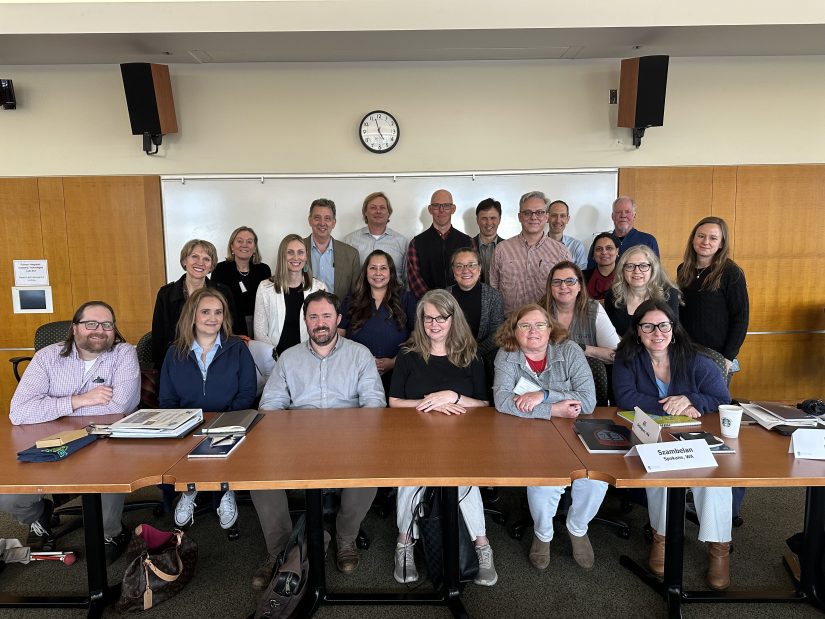Educating judges on water resource science: Mark Scheuerell and Angela Dillon take part in a Judicial Education Workshop
In a time of increasing calls for Washington judges to adjudicate water conflicts that reflect the State’s growth and development, two members of the University of Washington School of Aquatic and Fishery Sciences attended the Judicial Education Workshop on Water Resource Science, held on March 28, 2025, at Washington State University (WSU). Angela Dillon, a PhD student at SAFS, gave the judges an overview of the importance of water for the environment and fish, with an emphasis on salmon and the Electron Dam on the Puyallup River, while SAFS Professor, Mark Scheuerell, gave a tour of Lower Granite Dam on the Snake River, held on March 29.
The workshop, sponsored by the National Judicial College and hosted by the State of Washington Water Research Center (WRC), is part of a year-long educational program for judges in Washington State focused on the law and science of water. This larger program, entitled “Water & Tribal Law”, is organized by Alf Brandt of the National Judicial College Dividing the Waters program and Monte Mills, Professor of Law at UW, and convened by the incoming Washington Supreme Court Chief Justice, Debra Stephens.

“Many judges do not have a scientific background, and so the goal of this workshop was to examine several dimensions of science in support of water management in Washington State, with an emphasis on science process and knowledge: what we know about specific topic areas and how we know it; what we don’t know, and sources of uncertainty,” Mark Scheuerell said.
Attended by 12 judges, the workshop brought together several professors from WSU to speak about surface and groundwater connectivity, water rights, agriculture uses of water, water markets, and climate change. During this session, Angela Dillon presented on issues related to water and salmon.

Having previously worked with the WRC (which is located at WSU) on an assessment of criteria for identifying “net ecological benefit” following the 2016 “Hirst Decision” and subsequent passage of a new streamflow restoration law in Washington, Mark Scheuerell was invited by WRC Director, Jonathan Yoder, to participate in the workshop. “In turn, I suggested Angela would be a good candidate to also be involved, to provide insight into issues faced on the Puyallup River,” Mark said.
Through a series of short presentations and hands-on thought exercises, the judges were introduced to the intersections of social, economic, and ecological aspects of water and how they can play out in Washington. “The judges were unanimous in their praise for the breadth and depth of information presented to them,” Mark shared.
On Saturday morning, Mark led the judges on a tour of Lower Granite Dam. Lower Granite is the uppermost dam on the Snake River, that is passable to anadromous fishes like salmon and lamprey. It is also one of four dams on the lower Snake River that are commonly discussed as targets for breaching in support of salmon conservation. The group discussed the proximate and delayed effects of hydropower dams and their operations on salmon survival, and various reasons in support of or resistance to dam breaching.
“One of the recurring themes during the workshop and the tour was that water science is inexact, and many uncertainties remain,” Mark said. “As such, it’s important for judges to ask lots of clarifying questions related to what, if any, models were used in an analysis, any assumptions underlying the analyses, and the sources of data or information used in the analyses.”
This workshop was one of five different events that the judges are participating in as part of their larger education program.
